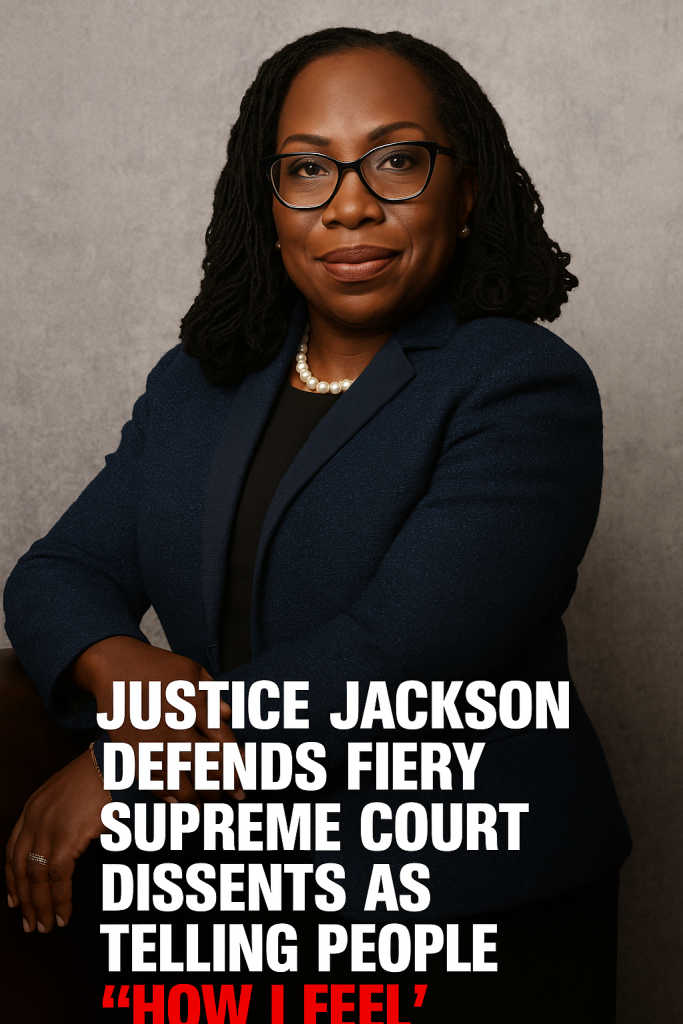Despite being the newest and most junior member of the United States Supreme Court, Justice Ketanji Brown Jackson is quickly establishing herself as a formidable voice on the nation’s highest bench. Known for her articulate and impassioned dissents, Jackson has made a concerted effort to assert her judicial philosophy, even in high-profile cases where she is not the principal dissenter.
One of the most notable recent examples came in a landmark decision addressing the use of universal injunctions — court orders that halt enforcement of laws or policies nationwide. The Supreme Court ruled that such sweeping injunctions issued by federal judges were unlawful. Despite joining other dissenting justices who opposed this ruling, Justice Jackson wrote a separate dissent of her own, emphasizing the potential dangers of curbing a court’s equitable powers in this manner.
The significance of this move cannot be overstated. Traditionally, junior justices often align their dissenting opinions closely with more senior members or join a shared dissent without adding a distinct voice. Jackson’s insistence on authoring her own dissent signals a desire to clearly articulate her independent legal reasoning and to influence future judicial debate.
In defending her approach, the Justice recently explained that her dissents are a form of candid communication, telling “people how I feel” about the Court’s decisions. This frankness resonates with those who see her as bridging the gap between complex legal reasoning and public understanding.
Jackson’s dissents have been characterized as fiery—unafraid to confront the majority’s rationale while laying out the implications in stark terms. Her willingness to speak out, even when in the minority, reflects her broader commitment to justice and the rule of law.
Legal analysts view Jackson’s numerous separate dissents as part of a deliberate strategy to leave a distinct judicial footprint early in her tenure. By staking out clear positions on controversial and complex issues, she is shaping how questions of constitutional interpretation, judicial procedure, and rights protections will be discussed at the Court moving forward.
Observers also note that Jackson’s approach is rejuvenating the tradition of dissent as an essential feature of the Supreme Court’s deliberative process. Through her strong dissenting opinions, she reminds both colleagues and the public that disagreements within the Court are not merely procedural—they expose fundamental legal and constitutional debates with lasting consequences.
As Justice Jackson continues to navigate landmark cases, her bold use of dissents ensures her judicial voice will remain prominent. This is a noteworthy development given her relatively short time on the bench and the historic nature of her appointment.
Her commitment to expressing well-reasoned opposition—even when isolated—underscores the dynamic nature of the Supreme Court today, where persuasive dissent can influence future rulings, legislative responses, and public discourse.
Ultimately, Justice Ketanji Brown Jackson is proving that seniority does not dictate influence on the Court; clear, courageous, and principled opinions carry enduring weight.



